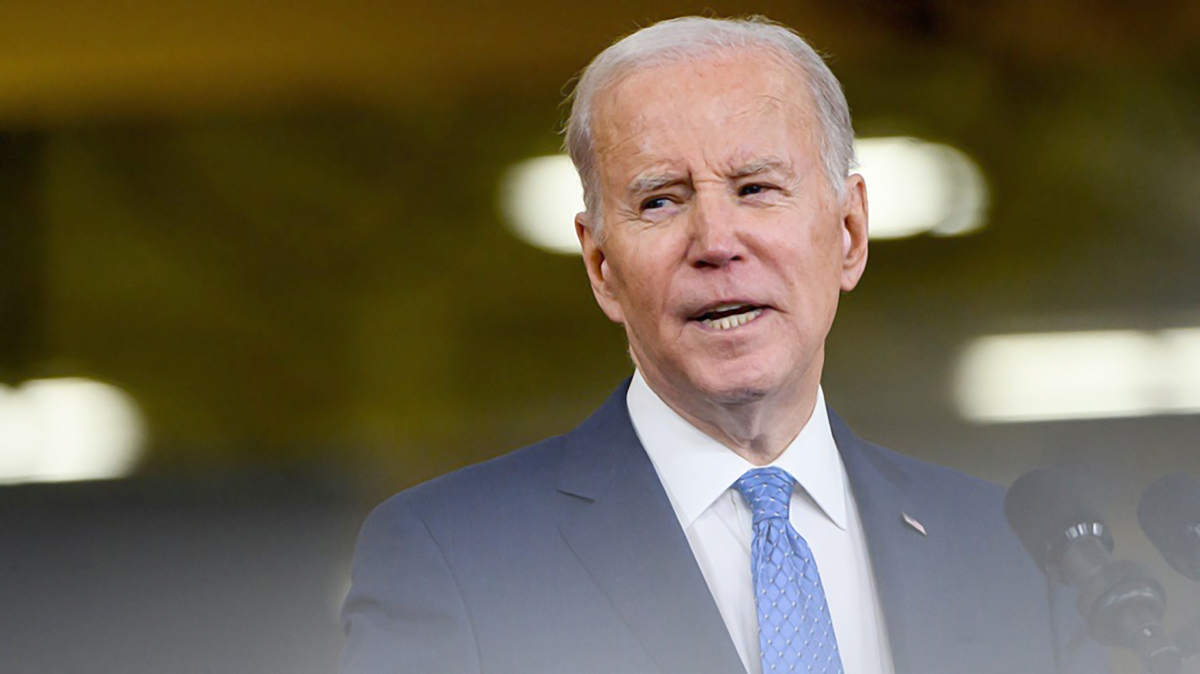By Nusrat Mirza
The Biden Administration is deeply concerned about the Ukraine war, although the recent Hamas attack on Israel has momentarily diverted attention. The danger of being overwhelmed by the dire consequences of defeat in the Ukraine war looms large. Such a defeat could lead to discrediting the trans-Atlantic alliance, impacting the Indo-Pacific region, causing the disintegration of NATO, and spelling doom for U.S. global hegemony. Consequently, the U.S. is once again looking to support Ukraine with renewed efforts.
In pursuit of its Ukraine agenda, President Biden addressed the nation from the Oval Office on October 19, 2023. This address can only be seen as the launch of a new phase in the Ukraine war, aimed at further pressuring Putin. Biden weaves together a new narrative, claiming that both Hamas and Russian leaders want to “completely annihilate a neighboring democracy.”
This assertion is, however, flawed, as the U.S. has a history of propagating misinformation with great fanfare. Biden seems to overlook the injustices committed by Israel and its unwavering support, which has the inhumane objective of keeping Arab nations under control and putting pressure on Russia through the Ukraine conflict. This aligns with the U.S.’s global hegemonic agenda. Biden appears to be in a mindset reminiscent of the New Conservatives (New CONS), masking their actions under the guise of democracy. This approach is increasingly unacceptable to the world. However, the U.S. remains committed to supporting its allies, which it deems essential for preserving American primacy on the global stage.
This perpetuates what some have referred to as “America’s forever war.” The U.S. is utilizing conflicts in Ukraine and Israel to advance its ultimate agenda of global hegemony. Today it is Ukraine and Israel; tomorrow it could be India or any other nation.
The U.S. is unlikely to ever abandon its pursuit of power, as indicated by Col. Peter Ralph in his book “NEVER QUIT THE WAR” and Brzezinski in “The Grand Chess Board,” where it’s asserted that America will maintain global primacy, even if it means engaging in war, regime change, or civil conflict in countries that challenge the United States.
Analysts in Europe are noting a growing disillusionment with the war, with the exception of Poland, which was once part of the USSR and played a role in balancing NATO. Additionally, Britain is showing support for the U.S. agenda, always aligning with the U.S. and anticipating its own ascent to superpower status when the U.S. inevitably declines.
On October 20, 2023, the United States of America successfully issued a joint statement with the European Union (EU), stating that the EU is in agreement with the U.S. on providing unwavering military support to Ukraine. The statement demands that Russia should “end its brutal war and withdraw its military forces, proxies, and equipment immediately, completely, and unconditionally from the entire internationally recognized territory of Ukraine.”
It emphasizes the imperative of restoring “internationally recognized borders” in any peace settlement and compelling Russia to “bear the legal consequences of all its internationally wrongful acts” against Ukraine. The joint work also includes efforts to undermine Russia’s ability to wage war and to expand its defense industrial base and capacity. Despite this joint statement, it appears that many European countries are not demonstrating a serious commitment to supporting Ukraine militarily. Some analysts point to Sweden and several Baltic states as examples where no significant actions or movements have been observed.
In contrast, a U.S. newspaper, Politico, reported on October 18 that Sweden’s Defense Minister, Pål Jonson, instructed the country’s military chief to provide Ukraine with Gripen fighter jets. Additionally, Norway, Denmark, Belgium, and the Netherlands may offer F-16 jets to Kiev. Experts believe that even a limited number of Gripen jets could significantly aid Ukraine’s efforts to control its airspace.
These jets are easy to maintain and can operate from shorter, narrower runways, including highway strips, which reduce the risk of being targeted at larger bases and destroyed by Russian attacks.
As the conflicts persist in Ukraine and Gaza, it becomes evident that they will continue until the US re-establishes it’s challenged hegemony over the global landscape. Those who oppose the US are branded as animals, reminiscent of how Japan was portrayed during World War II, and how Israel has labeled Hamas as such.
The author is the Chief Editor of Monthly Interaction.


